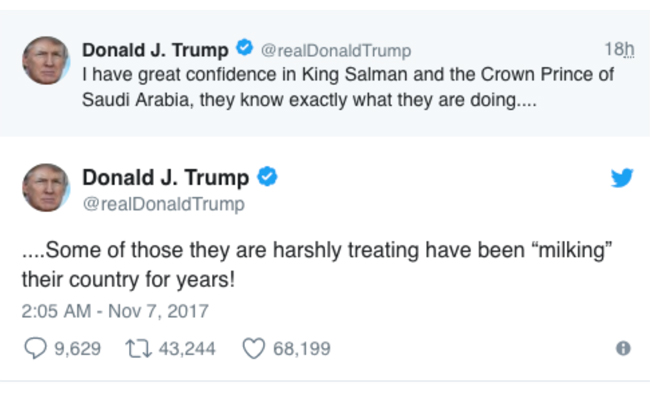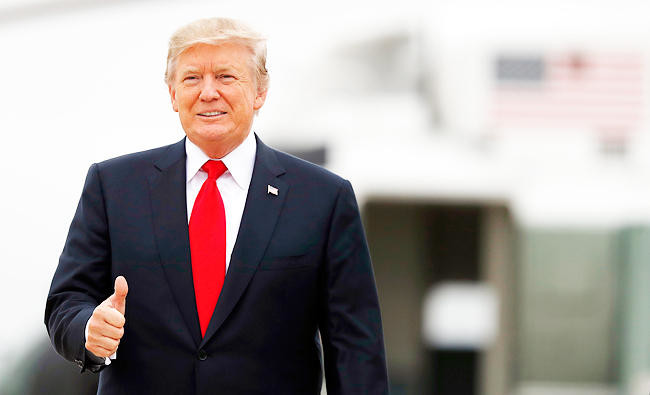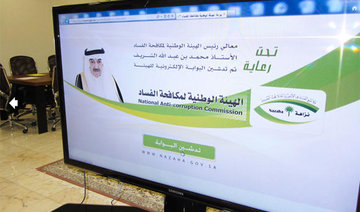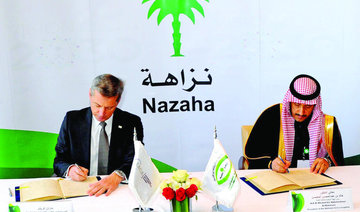WASHINGTON: US President Donald Trump expressed “great confidence” in Saudi leaders Monday amid an ongoing anti-corruption push, writing in a tweet, “They know exactly what they are doing.”
In a two-part Twitter message sent from Tokyo, Trump said he has great confidence in King Salman and the crown prince, adding some of the arrested people “have been ‘milking’ their country for years!”

Trump is addressing the arrests of prominent Saudi royals and business leaders ordered by a committee headed by Crown Prince Mohammed bin Salman.
The Saudi government has described the action as a sweeping effort to combat corruption.
It underscores an unprecedented restructuring of the Kingdom as Crown Prince Mohammed bin Salman steps up a dramatic reform drive for a post-oil era.
The US and Saudi Arabia have historically enjoyed close ties, which Trump re-affirmed in May when he visited the country in his first foreign trip since taking office.
Washington and Riyadh announced contracts worth more than $380 billion, including a $110 billion arms deal aimed at countering perceived threats from Iran and militants.
Trump spoke with King Salman by phone on Saturday, according to a readout from his office, in which he lauded the monarch and his son’s “recent public statements regarding the need to build a moderate, peaceful, and tolerant region” and urged the Kingdom to choose Wall Street as a venue for the IPO of oil giant Aramco.
























